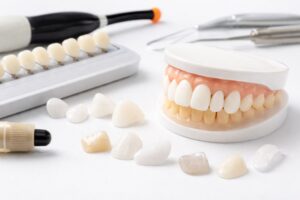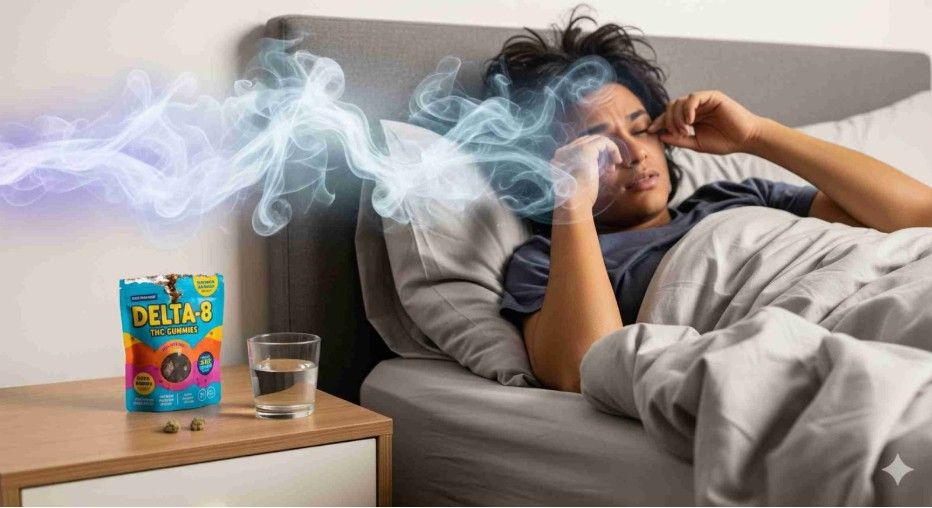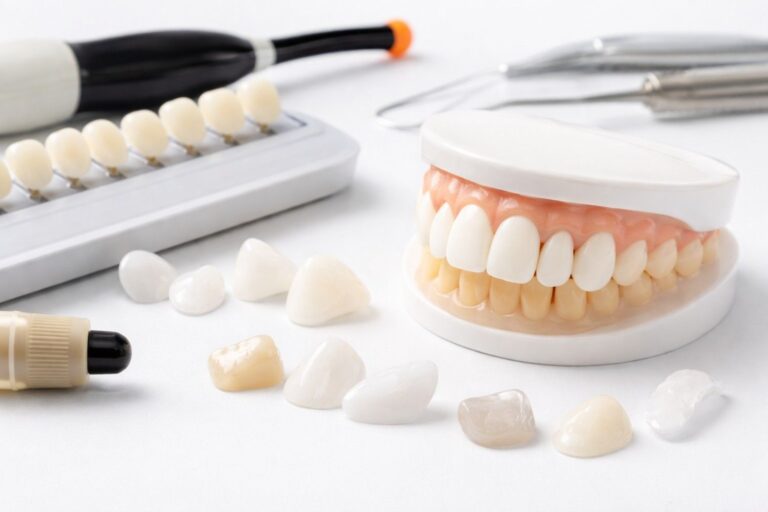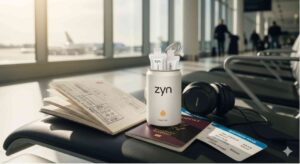The first time I tried delta-8, I expected a chill night in with snacks and a playlist. And to be fair, that’s mostly how it went—until the next morning. I woke up groggy, my head foggy, like I’d pulled an all-nighter without the fun of actually doing anything. My first thought was, “So this is what delta-8 side effects next day feel like.”
I’m not saying it ruined the experience, but it definitely made me rethink how, when, and how much to use. And if you’ve ever woken up after a delta-8 session feeling off, you’re not imagining it. These next-day effects are real, but they’re also manageable once you understand why they happen.
What Is Delta-8 and Why Does It Have Aftereffects?
Delta-8 THC is often marketed as the “lighter” cousin of delta-9 (the main psychoactive compound in cannabis). Users like it because it tends to feel smoother—less intense paranoia, a gentler buzz, and more control over the high.
But just because it feels milder in the moment doesn’t mean the effects disappear once you fall asleep. Delta-8 is still psychoactive. It binds to receptors in your brain and body, and its breakdown products can linger in your system. That’s why some people notice carry-over effects like drowsiness, headaches, or brain fog the next morning.
What Are the Common Delta-8 Side Effects Next Day?
The most talked-about side effects the day after using delta-8 include:
- Grogginess or fatigue. Many users say they wake up feeling sluggish, like they didn’t sleep deeply enough.
- Brain fog. Focus and memory can feel dulled for a few hours into the next day.
- Dry mouth and dehydration. Delta-8, like delta-9, can leave you parched—if you don’t hydrate before bed, you’ll feel it in the morning.
- Headaches. These can come from dehydration, poor sleep, or overconsumption.
- Mood changes. Some people report irritability or mild anxiety, especially if they used a stronger dose than usual.
These side effects aren’t dangerous for most users, but they can be frustrating if you’ve got a busy schedule waiting for you.
Why Do Delta-8 Side Effects Carry Over Into the Morning?
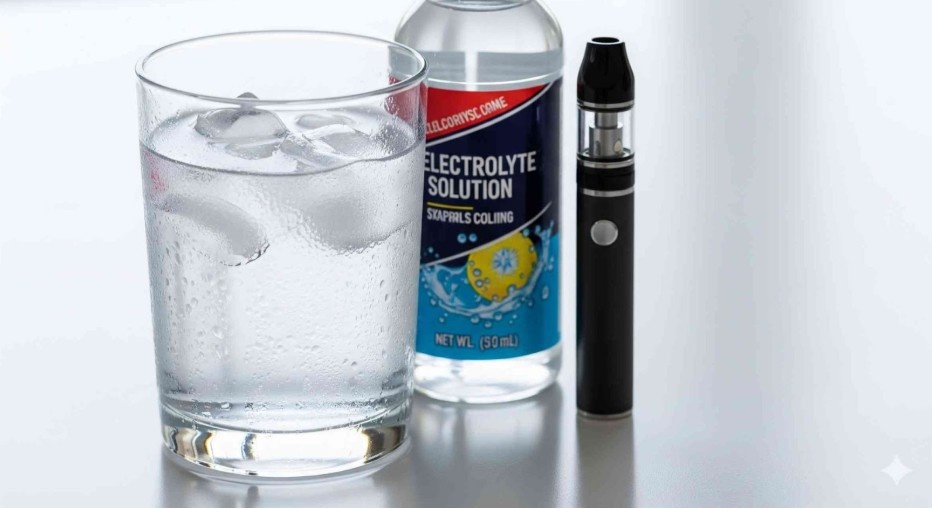
One big reason is dosage. Delta-8 is typically less potent than delta-9, so people sometimes assume they can take more. That “one gummy won’t hurt” mentality often backfires when the next-day fog rolls in.
Metabolism plays a role too. Your body may process cannabinoids slower depending on your age, hydration, diet, and overall tolerance. And if you’re using delta-8 edibles? The effects last longer because your liver metabolizes THC differently when ingested.
Finally, sleep quality matters. While delta-8 can make you sleepy, it doesn’t guarantee restorative rest. In fact, some users report lighter REM cycles, which can leave you feeling like you didn’t recharge overnight.
How-To: Prevent Delta-8 Side Effects Next Day
Here’s the step-by-step approach I recommend if you want to enjoy delta-8 without paying for it in the morning:
Step 1: Start low, go slow. If you’re new, stick to 5–10 mg edibles or a few puffs from a vape. You can always increase later, but it’s harder to undo overconsumption.
Step 2: Hydrate before and after. Water and electrolytes are your best defense against dry mouth, headaches, and fatigue.
Step 3: Time your session. Using delta-8 late at night often means lingering effects the next day. Try earlier in the evening so your body has time to process it before sleep.
Step 4: Pair it with good sleep hygiene. Keep your room dark, cool, and tech-free. This increases your chances of real rest instead of just sedation.
Step 5: Track your body’s response. If certain brands, flavors, or delivery methods always leave you groggy, switch it up. Not all delta-8 is created equal.
Are Delta-8 Side Effects Worse Than Delta-9?
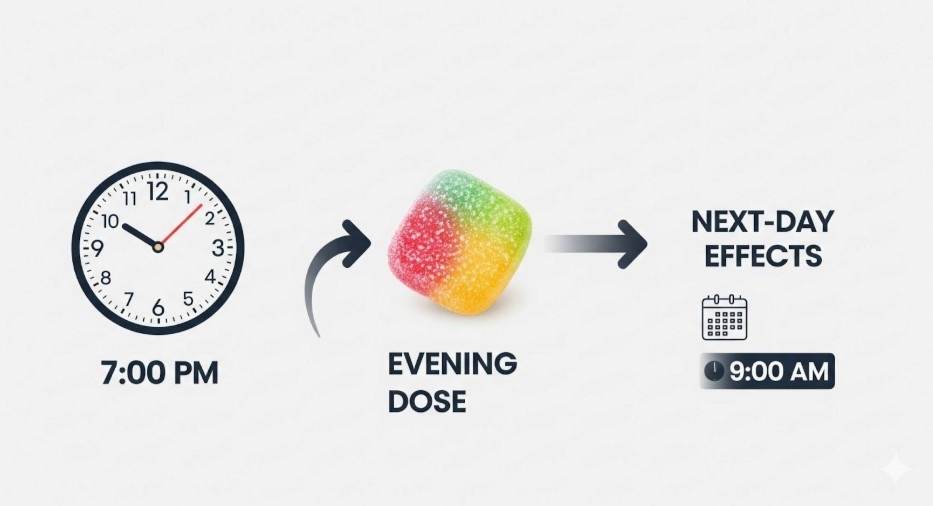
For many users, no. Delta-9 tends to hit harder both during and after use. But delta-8’s reputation as the “gentler THC” can be misleading. Because the effects feel mild in the moment, it’s easy to underestimate how much you’ve taken. That’s why some people end up with stronger next-day side effects than expected.
Also, since delta-8 products aren’t as tightly regulated, differences in purity and dosage can impact how your body reacts. Poorly made products may contain residual solvents or higher-than-labeled THC concentrations, which only increases the likelihood of grogginess or headaches.
Frequently Asked Questions
1. Why do I feel groggy the morning after using delta-8?
That’s usually a mix of dosage, metabolism, and sleep quality. Your body may still be processing cannabinoids, leaving you with lingering drowsiness. Staying hydrated and taking smaller doses often helps.
2. Can delta-8 cause anxiety the next day?
It’s possible. While delta-8 is less likely to trigger anxiety than delta-9, high doses can still cause chemical imbalances that leave you feeling irritable or uneasy the next day.
3. How long do next-day side effects usually last?
For most people, they fade within a few hours after waking up. Drinking water, eating a balanced meal, and moving your body can speed up the process.
4. Do edibles cause worse side effects than vaping?
Often yes. Edibles take longer to process and produce a stronger, longer-lasting high. That carry-over effect into the next morning is more common with gummies or baked goods than with vape pens.
Waking Up Clear-Headed Is Possible
So, can you experience delta-8 side effects next day? Absolutely. But that doesn’t mean you have to resign yourself to foggy mornings and groggy coffee runs. With the right dose, hydration, and timing, you can enjoy delta-8 without the dreaded next-day slump.
Personally, I’ve learned that smaller doses and smarter timing make all the difference. Delta-8 can be fun, relaxing, and even therapeutic for some—but it’s not worth derailing your whole next morning. Think of it like tweaking a gadget: a little adjustment goes a long way.
My advice? Respect the compound, respect your body, and keep water nearby. Trust me—waking up clear-headed feels way better than pressing snooze on your entire day.

